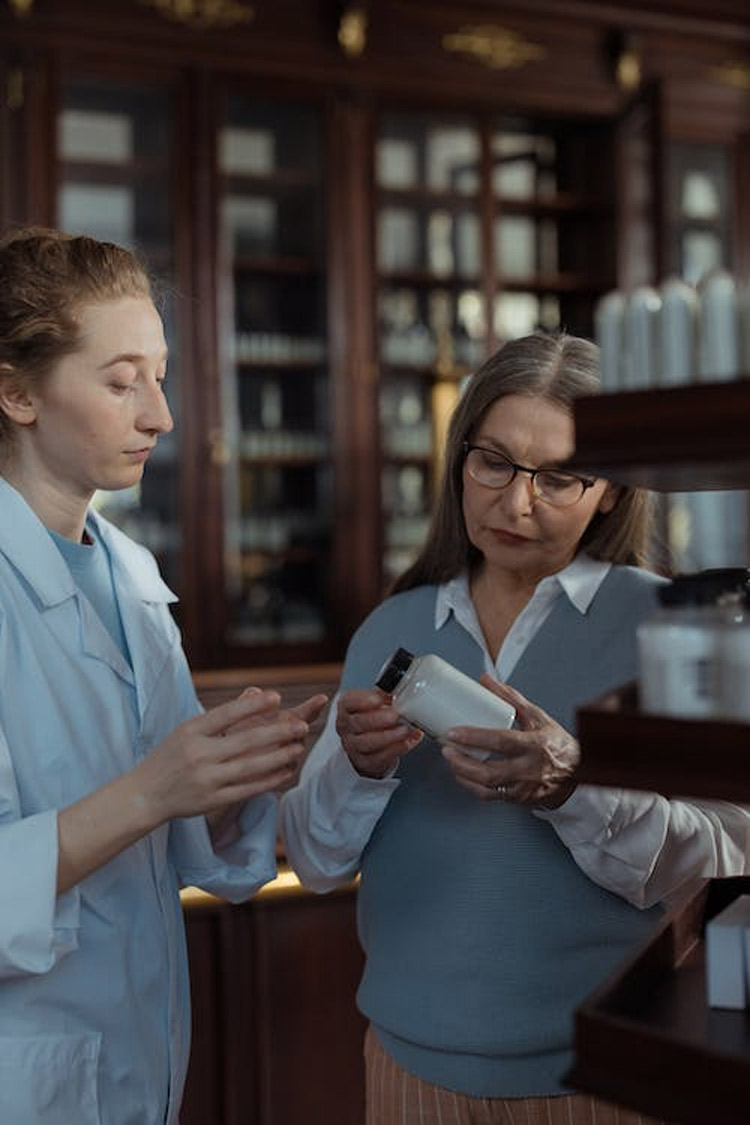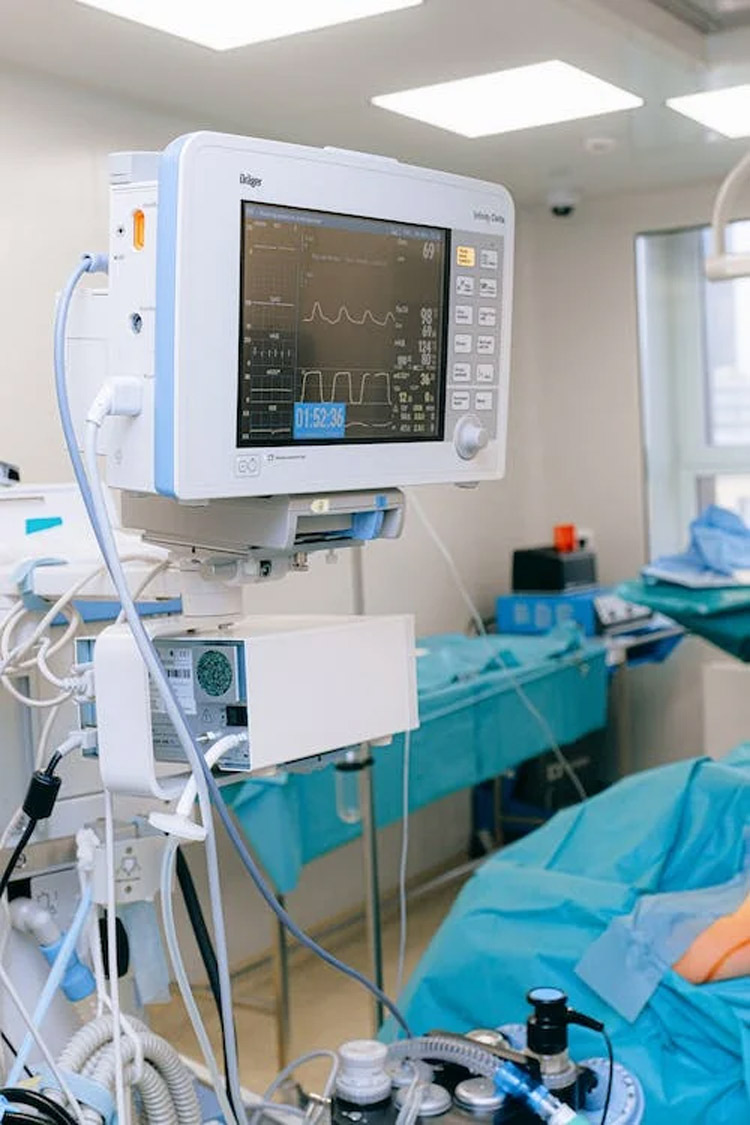
This post provides detailed information on the compounding pharmacy technician job description and career, including the key duties, tasks, and responsibilities they commonly perform.
It also highlight the major requirements and how to become a compounding pharmacy technician and advance your career, as well as the salary you can earn.
What Does a Compounding Pharmacy Technician Do?
The compounding pharmacy technician job description involves working with pharmacists to compound prescriptions to meet the patient’s special needs.
According to UEI College, pharmacy technicians do compound medication, and those who do so are called compounding pharmacy technicians.
Under the close supervision of pharmacists, compounding pharmacy technicians can carry out sterile and non-sterile compounding of medications ordered by a physician.
They do so by combining or processing various ingredients to arrive at a formulation that best serve the need of the patient, which they couldn’t get from the available drugs in the market.
For instance, in a case where it is difficult for a patient to take in medication in solid form, the pharmacist may compound the drug into liquid form so that it can be administered to the patient.
Another scenario that shows the importance of compounding medications is when a patient is found to be allergic to certain components of the drug that they need.
To eliminate the offensive ingredients from the medication, the pharmacist can compound the medication without the components the patient is allergic to.
To assist the pharmacist in this practice is where the compounding pharmacy technician comes in. Compounding pharmacy technicians are actually pharmacy technicians that have specialized in the area of formula preparation.
Over time on the job, they have garnered immense knowledge of all relevant compounding guidelines, such as and standards, and state compounding pharmacy law.
They have also gained enough skills and experience to ensure that quality assurance standards are maintained in product preparation and compounding procedures, as well as in packaging and labeling of products.
In some pharmacy, the job description of the compounding pharmacy technician also entails those tasks that the pharmacy technician would normally do, such as front desk duties.
Compounding Pharmacy Technician Job Description Example/Sample/Template
Below is an example of compounding pharmacy technician job description, showing a list of duties, tasks, and responsibilities an individual holding the position would be expected to perform as part of their job description:
- Weigh ingredients correctly and process them following the provided formula worksheet specifications
- Ensure correct formula preparation according to the prescription following quality assurance guidelines
- Make sure the pharmacist on duty has confirmed the formulation in accordance to the script before starting compounding preparation
- Ensure compounds are prepared in accordance to formulation and that all relevant compounding guidelines and quality standards are maintained
- Weigh and measure suitable chemicals to prepare different kinds of compounds including suspensions, creams, solutions, ointments, capsules, and suppositories
- Package and label prepared compounds in suitable dispensing tool
- Place and confirm that the beyond use date on the patient’s product label is correct
- Send prepared compound and documentation to supervising pharmacist for verification and sign off
- Ensure that all sterile products are tested following 795 & 797 requirements
- Execute quality assurance procedures on assigned randomly sampled scripts and document results following standards
- Responsible for daily cleaning and logs in accordance to established policy
- Perform daily confirmation that all equipment are working well, including capsule machines, counters, and cleaning balances
- Perform filling and unloading of the dishwasher
- Ensure all equipment, including freezer/fridge temperatures and weights on scales at work station are verified and maintained every morning
- Ensure that all relevant steps in each compound are verified with the supervising pharmacist
- Teach and mentor pharmacy technicians
- Take part in relevant training
- Take part in departmental meetings, as well as in relevant educational programs
- May be asked to handle special projects as well as perform other duties that may be assigned.
Compounding Pharmacy Technician Requirements: Knowledge, Skills, and Abilities for Career Success
Here are key requirements, including knowledge, abilities, and skills most employers require from applicants vying for the position of compounding pharmacy technician:
- Two years and more experience working as compounding pharmacy technician
- State licensed Pharmacy Technician in good standing
- Certified Pharmacy Technician (CPhT)
- High school diploma
- Strong knowledge of and standards and all relevant USP compounding guidelines
- Ability to work according to all USP compounding standards
- Knowledge of State laws regulating pharmaceutical compounding practice
- Strong knowledge of product preparation, compounding, packaging and labeling as well as quality assurance standards
- High proficiency in computer usage
- Effective oral and verbal communication, with co-staff, pharmacists, and the public
- Strong ability to perform optimally in a team setting
- Ability to excel performing multiple tasks at the same time without making errors
- Yearly training in OSHA, HIPAA, and in pharmacy procedures and policies.
Compounding Pharmacy Technician Employment
The employment for compounding pharmacy technicians and other technicians was 460,280 in 2023, according to the U.S. Bureau of Labor Statistics.
The industries with the highest employment for compounding pharmacy technicians and other technicians include Health and personal care retailers (237,010 employments) and general medical and surgical hospitals (71,640 employments).
Compounding Pharmacy Technician Salary
According to Indeed, the average salary of a compounding pharmacy technician is $37,093 a year.
It is expected that the salary of compounding pharmacy technicians will increase in the future as more people become interested in this field.
The top salary paying states for compounding pharmacy technicians are New York, $43,020; Philadelphia, $39,103; and Houston, Texas $37,879 per year.
Women make up 75.1% of all pharmacist technicians, while men make up 24.9%.
An employed pharmacist technician is 37 years old on average.
Compounding Pharmacy Technician Career Advancement
Career opportunities available to pharmacy technicians include:
- Nuclear Pharmacy
This is a unique situation, and pharmacy technicians have received special training and certification in handling and preparing radioactive medications.
A technician’s duties in this setting include performing mathematical calculations, compounding, labeling, inventory management, and ensuring radiopharmaceuticals are handled and transported safely.
2. Chain Pharmacy
In a chain pharmacy, a pharmacy technician is in charge of processing customer prescription data, filling and labeling medications, managing inventory, dealing with insurance companies, and dispensing medications to customers.
They may also be required to take phone prescription orders and transfer prescriptions between pharmacies. This may appear to be a routine, but it is not.
3. Private Pharmacy
Technicians in this setting, like their colleagues in chain pharmacies, are generally responsible for compounding, filling specialty packaging, and delivering medications directly to patients, as well as managing inventory, processing customer prescription information, and so on.
Again, this sector represents a significant portion of the opportunities available to pharmacy technicians in the United States.
4. Utility Medicine Technician
Utility Medicine Technicians are responsible for three main functions: they are responsible for taking care of and preparing medications, making sure drugs are used as directed, and selling emergency supplies of medication to those unable to reach their doctor’s office or pharmacy to refill their prescriptions.
5. Specialty Pharmacy Technician
A specialty pharmacy technician works in a variety of settings, in which medications are prepared for patients.
They may be asked to perform the same duties as other technicians when preparing medications, such as counting and measuring pills, or they may be asked to do other tasks like dispensing or selling prescription drugs to customers.
6. Hospital Pharmacy Technician
A hospital pharmacy technician works in some of the most demanding hospital environments, where he or she is responsible for helping run the pharmacy department in a hospital.

7. Pharmaceutical Sales Representative
A pharmaceutical sales representative works to promote pharmaceutical drugs. They speak with doctors and other medical professionals, explaining the benefits of the pharmaceuticals and asking for their dedication.
8. Health Records Technician
Health records technicians create, organize, and maintain medical records. They work in hospitals, family health centers, and private practices to create, organize, and maintain medical records for patients of all ages.
Health records technicians are required to have an Associate’s Degree or Diploma from an accredited program.
9. Medical Writer and Editor
A medical writer and editor writes and edits documents, such as journal articles. They may also edit medical records, and they may work independently or alongside a group of doctors who need their assistance in recording and editing medical information.
10. Pharmacist
A pharmacist dispenses medicine to patients and offers health advice, as well as directing the other pharmacy staff.
They must be registered pharmacists through successful completion of the pharmacy board licensure exam.
Challenges Faced by Compounding Pharmacy Technician on the Job
These are some of the challenges pharmacy technicians may have to face on the job:
- Performing Compounding Pharmacy Work
This challenge can be frustrating when working at a pharmacy or medical laboratory, because it requires the ability to accurately store, organize, and label items in an effective manner.
The compounding technician needs to be organized enough to know what bottles are for what medications, so he or she can ensure that each bottle is handled properly.
In addition, compounding technicians need to clean bottles and canisters often in order to keep them free from bacteria.
2. Managing Inventory
Managing inventory of pharmaceutical ingredients (drugs), drug compounding equipment, raw materials, and packaging material over time to avoid spoilage or to meet product standards is not an easy task.
Compounding pharmacy technicians have to have some knowledge of proper storage and packaging of pharmaceutical products, as well as a good sense of inventory control.
They also can’t afford to over-stock or under-stock their inventory or they will lose money and may be required to recall items that have already been dispensed.
3. Managing Personnel
Being able to supervise, train, motivate, and work with staff, the ability to recognize and manage conflict, setting reasonable goals, and being accountable for meeting them are some of the demands of being a pharmacy technician.
In addition, technical skills are also needed like being able to use a computer and other machines and equipment to perform the required tasks in an effective manner.
How to Become a Compounding pharmacy Technician
A high school diploma or equivalent is required to work as a compounding pharmacy technician.
Maintain a clean employment record by becoming a licensed pharmacy technician.
To obtain certification, you must pass the Pharmacy Technician Certification Exam (PTCE).
Obtain a position as a pharmacy technician to gain experience working with medications and learning about drug interactions.
Seek compounding pharmacy technician jobs with pharmaceutical companies and laboratories after a few years.
On-the-job training is provided by the majority of employers.
In this position, excellent communication and organizational skills are required.
Major Benefits of a Compounding Pharmacy Technician Career
These are some of the benefits that come along with a career as a compounding pharmacy technician:
- Competitive Salaries
Salary varies depending on the employer and the actual job description. However, according to a survey done by the U.S. Bureau of Labor Statistics, median salary was $38,590 or higher in 2016.
2. Flexible Schedules
Compounding pharmacy technicians have a lot of flexibility, thanks to working with pharmaceutical companies who often hire people on a case by case basis based on their experience and skills.
3. Health Care Coverage
Compounding pharmacy technicians work for pharmaceutical companies which provides health insurance and medical benefits for employees.
4. Good Starting Pay
Compounding pharmacy technicians can start making salary in the range of about $25,000 and up after some years of experience working for pharmaceutical companies or laboratories.
This is why it is very important to get a job as a compounding pharmacy technician from the beginning.
5. Education Reimbursement Programs
Compounding pharmacy technicians are entitled to reimbursement for their education through some of the pharmaceutical companies, so if you have been paying your way through school while a compounding technician it is possible that you may be entitled to a degree upon graduating.
6. Exciting Career Options
Compounding pharmacy technicians work with some of the most exciting and important medications that provide relief from symptoms and disease, helping improve patients’ lives.
7. Great Job Security
The demand for pharmaceutical products will always be a stable one, so the need for compounding pharmacy technicians is always going to be a steady and important one.
As long as there are drugs being produced, there will be need to be someone on hand to make sure they are made properly in safe conditions.
8. Variety of Work
Compounding pharmacy technicians also work with medical devices, pharmacy supplies, cosmetics, and fragrances as well as in many other industries.
This means there are lots of different areas that need to be covered that can lead to a great job for the compounding technician.
9. Easy Traveling
Compounding pharmacy technicians rarely travel far from their home base unless they are sent for training or sample testing, but if you want to make a move and go somewhere else on your own, this is not a problem either.
10. Strong Career Paths
Compounding pharmacy technicians can advance to the positions of pharmacy technician supervisor, pharmacy technician supervisor, or assistant director, which can lead to a very stable and secure position in the pharmaceutics industry.
Conclusion
If you want to be successful working as a compounding pharmacy technician, then it is essential that you have the best qualifications possible.
With training and a positive attitude, you will soon be able to start working with a great employer, giving you the opportunity to make an impact on the medication and delivery systems in your community.
This post is helpful to individuals interested in the compounding pharmacy technician career, to learn all the need to know about the duties and responsibilities of the job and decide if the compounding pharmacy technician career is the right one for them.
It is also helpful to recruiters/employers needing to make a detailed job description for use in hiring for the compounding pharmacy technician position in their organizations.
They can apply the sample compounding pharmacy technician job description above in making one for their organizations.
References:
U.S. Bureau of Labor Statistics
O*NET OnLine












